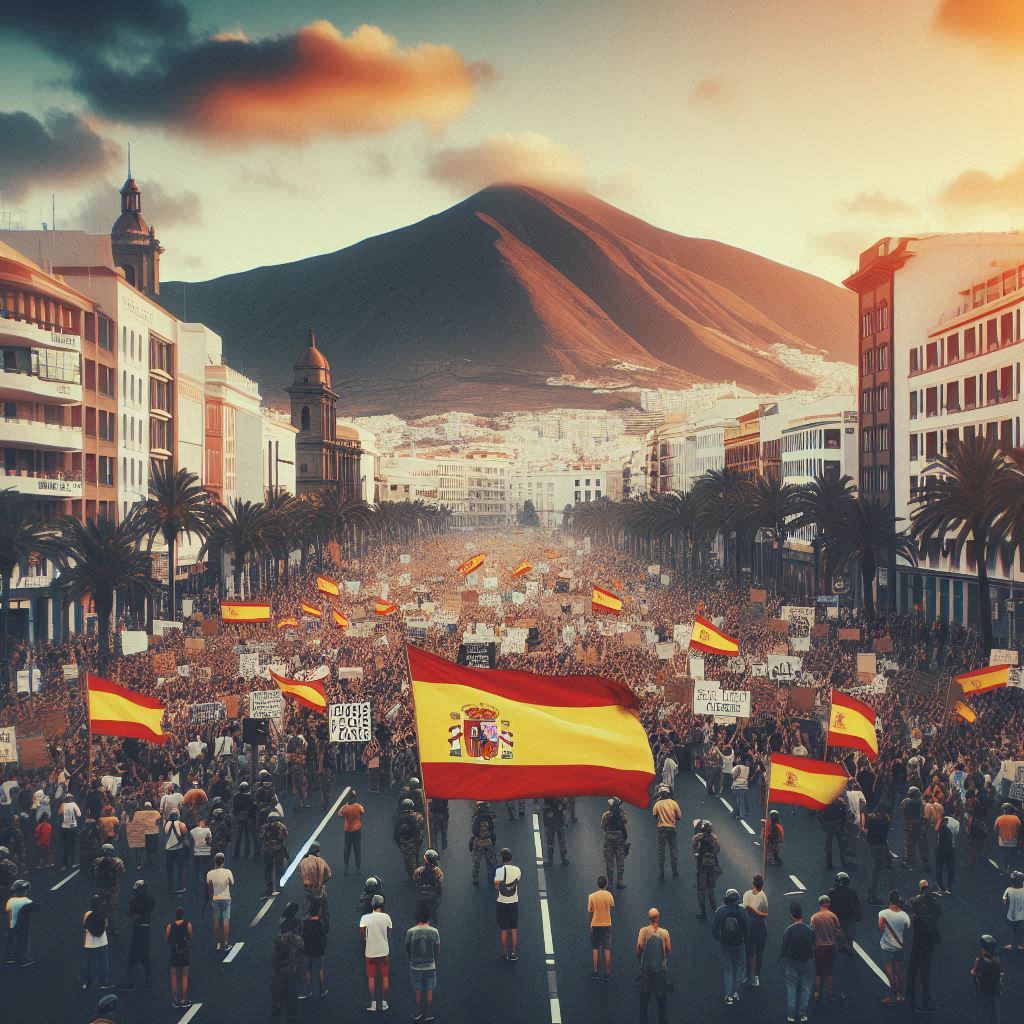
In recent years, the dynamic between locals and tourists has been shifting in various regions around the world. Once widely embraced as a significant source of income and cultural exchange, tourists are increasingly facing pushback from local populations. The growing discontent stems from concerns over overtourism, environmental strain, and the social disruption that large influxes of visitors can bring. One of the most recent and striking examples of this rising tension occurred in Spain’s Canary Islands, specifically on the islands of Lanzarote and Tenerife, where British tourists were met with protests urging them to “go home.”
The Incident in Lanzarote and Tenerife
In September 2024, British tourists visiting the Canary Islands were taken aback when they found themselves surrounded by groups of locals demanding their departure. Protesters held signs reading, “Tourists go home!” and “Lanzarote is not for sale!” while chanting slogans that underscored the increasing frustrations of the local population. What triggered this outcry?
The Canary Islands, particularly Lanzarote and Tenerife, have long been popular tourist destinations, especially among British holidaymakers. With stunning beaches, warm weather, and an array of resorts, these islands attract millions of visitors annually. However, many locals argue that the sheer volume of tourists has led to a series of problems, including rising property prices, overcrowded infrastructure, and environmental degradation.
The protests were largely symbolic, reflecting deep-seated concerns about the changing face of these islands. Locals feel that tourism has overshadowed other economic sectors and are frustrated by the increasing unaffordability of housing, driven up by holiday rentals. There is also a growing sentiment that tourists are benefiting more than the islanders, who are seeing limited returns despite tourism being the primary source of income.
The Global Struggle with Overtourism
The situation in the Canary Islands is not an isolated one. Many popular tourist destinations around the world are grappling with the pressures of overtourism. Cities like Barcelona, Venice, and Dubrovnik have all implemented measures to limit the number of visitors. Residents in these cities, much like those in Lanzarote and Tenerife, have protested against tourists, arguing that their cities are being “overrun” and their way of life disrupted.
In Venice, for instance, where narrow streets can become impassable due to the sheer number of visitors, locals have rallied against massive cruise ships docking in the city’s lagoon. The environmental toll, combined with a surge in short-term rentals pushing up housing costs, has led many Venetians to view tourism as more of a burden than a blessing.
Similarly, in Barcelona, where tourism has skyrocketed in the past two decades, protests have erupted over the strain on public services, rising rents, and the “Disneyfication” of once-authentic neighborhoods. Local government authorities have since introduced regulations to manage the impact of tourism, including limiting the number of hotel licenses and restricting new Airbnb listings.
Causes of Tension
Several key factors are fueling the discontent between locals and tourists:
- Rising Costs of Living: In many tourist-heavy areas, property prices and rents have skyrocketed. Locals often find it difficult to afford housing, as landlords prefer short-term tourist rentals, which are more lucrative.
- Environmental Impact: The strain on local ecosystems is another major concern. Beaches, parks, and nature reserves in tourist areas are often overwhelmed by the sheer volume of visitors, leading to littering, erosion, and damage to delicate environments.
- Cultural Erosion: Many locals feel that mass tourism leads to the dilution of their culture. Traditional customs, language, and ways of life are often commercialized or sidelined to cater to tourists’ preferences, creating resentment.
- Public Services Overload: Tourists place an additional burden on public services, from transportation to healthcare. Locals in these areas are often frustrated by overcrowded buses, long queues in hospitals, and insufficient resources to accommodate both tourists and residents.
Finding a Balance
As tensions rise, many communities are seeking ways to balance the economic benefits of tourism with the well-being of their residents. In the Canary Islands, local authorities are reviewing policies to regulate holiday rentals and develop sustainable tourism strategies to reduce the strain on the environment and infrastructure. Cities like Barcelona and Venice are pioneering efforts in visitor management, introducing taxes, limiting cruise ships, and capping the number of tourists allowed into certain areas.
Ultimately, the challenge lies in finding a sustainable tourism model that ensures local communities benefit from the influx of visitors without sacrificing their quality of life or the environment. While tourism remains a crucial part of the global economy, these recent protests reflect a growing demand for change, one that prioritizes the needs and voices of locals in the face of mounting pressures from the tourism industry.









